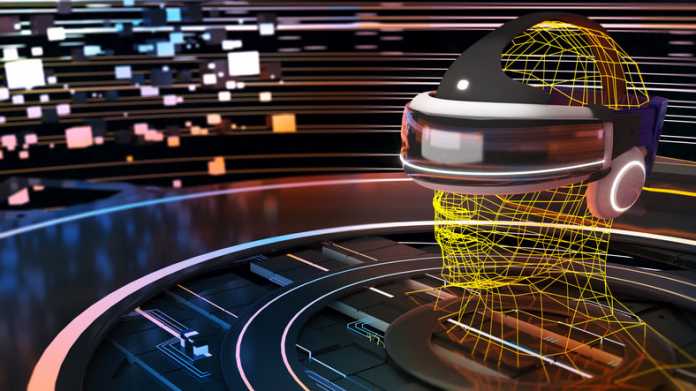Metaverse & Blockchain: The Future Of Gaming In Massive Virtual Worlds
Virtual reality and the blockchain are two of the most exciting technological advancements now taking place. A technical revolution in gaming is about to happen thanks to the possibilities of blockchain and metaverse gaming.

What is blockchain technology?
A blockchain is a distributed database that enables transactions that are safe, open, and unchangeable. It is therefore ideal for usage in the virtual world, where safe and open transactions are required. Digital assets, which may be used in games and other applications, can also be created using blockchain technology.
How is blockchain changing the gaming industry?
The gaming industry is changing by making it more decentralised and more inclusive. Blockchain allows for peer-to-peer transactions to happen without the need for a third party such as a bank. This allows people to use cryptocurrencies such as Bitcoin and Ethereum to play games on blockchain platforms. Blockchain technology is also used to create games that are built on the Ethereum network. On some platforms utilising blockchain technology, there is no need for a centralized server and players can’t be banned or kicked out of games as with classical platforms.
Key aspects of blockchain technology in games?
Blockchain technology can provide a number of benefits for games, including improved security, game data integrity, and player ownership of in-game assets. Security is a big worry for any online game due to popular games like Axie Infinity being hacked, as player data and account details are frequently targeted by hackers. Player data needs to be securely saved and shielded from alteration or unwanted access. Blockchains can also be used to validate the legitimacy of in-game assets and stop fraud or unauthorised duplication.
How will blockchain affect metaverse?
Some game assets will be traded in-game and on third-party marketplaces such as open-sea. Only time will tell as to the broader effects of blockchain integration into game worlds and metaverse, as the merger of the technologies is relatively new and there is scope for experimentation and deployment.
In-game purchases and microtransactions are other areas in which blockchain technology may have a significant impact. Blockchain technology may enable in-game coin purchases that may be used to purchase goods or services in the game. This could potentially create a brand-new gaming industry and change how games are made profitable.
In conclusion, blockchain might be used to build trustless virtual reality systems. Smart contracts, for instance, might be used to automatically enact laws and regulations in a virtual environment. This would do away with the need for centralised authorities while also fostering a more equitable and open environment for all users.
Overall, blockchain has enormous potential for metaverse and virtual reality growth. It will be intriguing to watch where the future leads us, as we have only begun to scratch the surface of what is possible with the respective technologies and platforms that are currently available.
The Author Of This Article Is Efe Anidi.